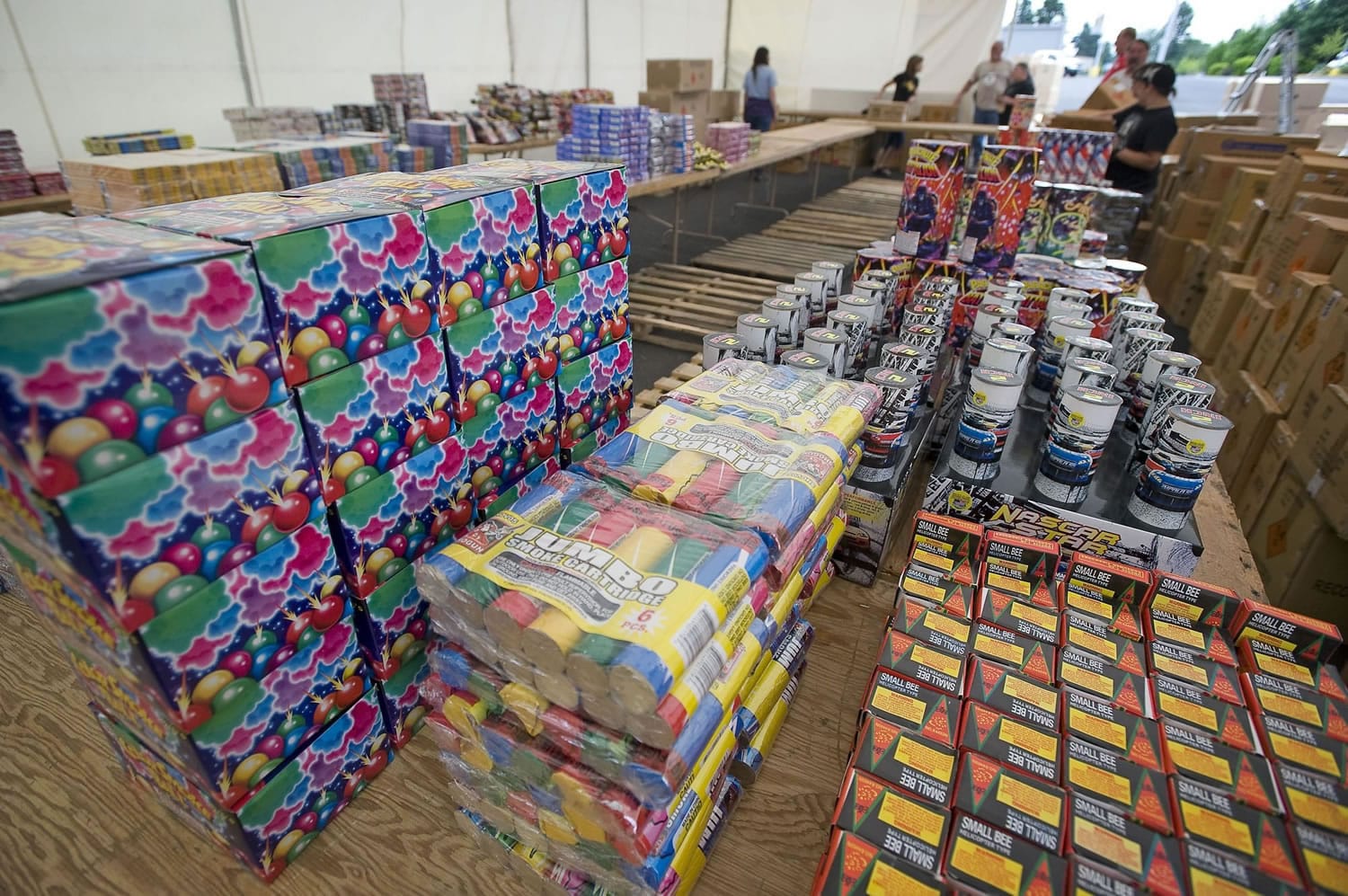Previously: Vancouver in 2008 cut fireworks sales to June 28 to July 4, with use allowed from July 1 to July 4. Use was banned on New Year’s Eve in 2005.
What’s new: The city council is considering further restrictions on sales and use days, eliminating sales of aerial and other more dangerous fireworks, or a possible multiyear phase-out to a total ban.
What’s next: A workshop will be scheduled for further discussion in the next few months. Any changes won’t take effect until 2013 at the soonest.
It may be months away, but the forecast for the skies over Vancouver in early July is a 100 percent chance of raining fireworks.
Previously: Vancouver in 2008 cut fireworks sales to June 28 to July 4, with use allowed from July 1 to July 4. Use was banned on New Year's Eve in 2005.
What's new: The city council is considering further restrictions on sales and use days, eliminating sales of aerial and other more dangerous fireworks, or a possible multiyear phase-out to a total ban.
What's next: A workshop will be scheduled for further discussion in the next few months. Any changes won't take effect until 2013 at the soonest.
The whiz, bang and pop of personal fireworks provides a perennial spark to a debate about family fun and tradition versus fires, noise and property damage in Vancouver.
On Monday, it was no different, as the Vancouver City Council indicated it may be in favor of putting further bans on the boom.
At the top of the priority list appears prohibiting the sale and use of aerial and explosive fireworks, including mortars and Roman candles. Instead, permitted fireworks would be similar to the much tamer variety allowed in Oregon.
And policymakers also seemed warm to either further restricting the days during which fireworks could be sold and used, as they did four years ago or a multiyear transition to a total ban on fireworks in the city limits.
Fireworks are sold in Vancouver from June 28 to July 4, but residents may use them only from July 1 to July 4. Legal use on New Year’s Eve was eliminated in 2005.
Some, such as Councilors Jeanne Stewart and Jack Burkman, straddled the line between more rules and ridding Vancouver of personal fireworks.
“I know a lot of families get a lot of enjoyment in having fireworks parties,” Stewart said. “But really, with all the fireworks that are sold and used, there are some pinheads … who just go crazy.”
It’s not clear how effective a ban would be, with more thrilling fireworks available in the rest of Clark County.
Still, Councilors Bill Turlay and Larry Smith were most in favor of ridding the city of fireworks, just as Seattle, Tacoma, Spokane and Bellevue have done. Turlay cited potential triggers for returning veterans, while Smith said Vancouver is among those cities that are just getting too large and dense to host them.
But others, including Mayor Tim Leavitt, said he was encouraged to see that fireworks-related complaints between June 28 and July 5 have dropped from 688 in 2005 to 228 in 2011.
“There are pinheads who abuse fireworks, but there are pinheads out there who abuse every ordinance we have,” he said, referring to Stewart’s earlier comments. “I’m not finding right now enough compelling evidence to commit to an outright ban at this point.”
Discussion of any new restrictions let alone a ban is sure to set off a display on both sides of the debate, including from the nonprofit groups that sell fireworks at 22 permitted stands in Vancouver to raise money. While the groups don’t report sales figures to the city, the Fort Vancouver National Trust, which operates 13 stands eight in city limits, six in the county earns about $100,000 a year that goes toward the massive display at Independence Day at the Fort.
But Elson Strahan, executive director at the trust, said though the popular show was canceled in 2009 due to funding shortfalls, his group won’t lobby heavily either way on the issue.
“We’ve been moving much more aggressively into securing sponsorships,” Strahan said, adding the larger sanctioned show could see more attendees if personal fireworks were banned.
The city got $9,700 in sales tax from fireworks sales in 2011, but overall, fireworks cost taxpayers money.
In a presentation, Fire Marshal Heidi Scarpelli said that there were 17 fires from June 28 to July 5 that can be attributed to fireworks, with a damage total of $36,000, with many others also likely started by sparks and spent casings. Fire and EMS calls also jump on July 4 (102) and July 5 (90) the average volume is just more than 60 a day.
The holiday puts “a really big burden on the fire department,” she said.
The same goes for the police department, Cmdr. Mike Lester told the city council. VPD had 501 calls on July 4, and 566 on July 5 up to 100 more calls than the daily average. Overtime costs run about $24,000 a year.
Stewart and Leavitt suggested devising possible ways for the city to recoup some of those fire and police costs, perhaps through a public safety surcharge.
Scarpelli said state law allows cities to charge a maximum permit price of $100 for stands, meaning the city gets $2,200 a year. But her department spends about $8,100 on required steps in the application and permit process, including criminal background checks, inspections and more.



